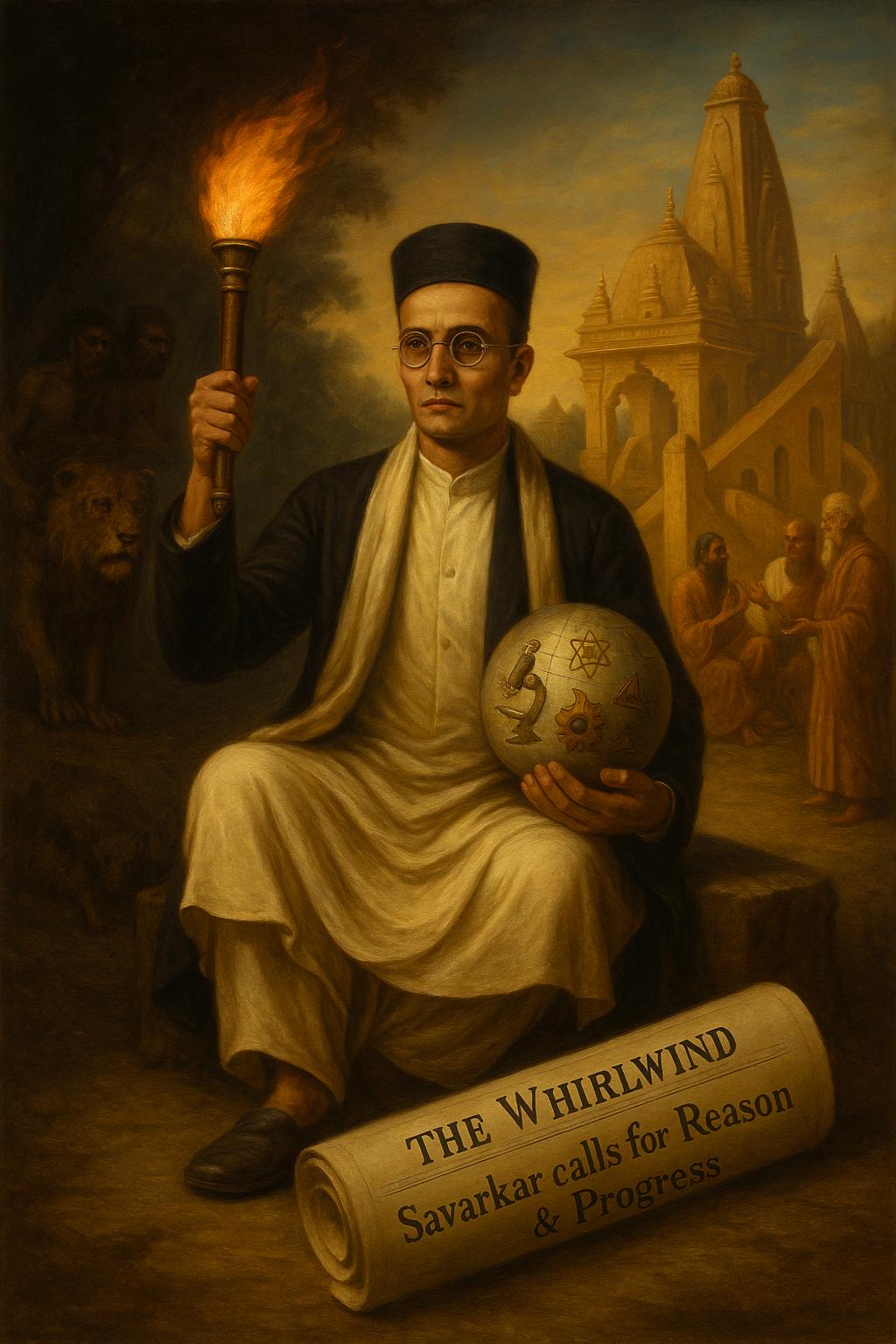Savarkar’s Philosophy & Worldview, Part 5; Savarkar’s Agnosticism (2/4)
Vinayak Damodar Savarkar held distinct views on the universe, nature, and humanity’s place within these vast dimensions. His agnosticism shaped his perspective, leading him to challenge conventional religious notions and advocate for a rational, scientific approach to life.
The Universe: A Realm of Indifference
Savarkar’s outlook on the universe was rooted in the belief that human existence is confined to this world, not to any transcendental realm. He rejected the idea of divine intervention in human affairs and emphasized that the universe, by its very nature, is largely indifferent to humanity’s struggles. He observed that the forces of the universe are, to a limited degree, favorable to humanity, but predominantly opposed.
According to Savarkar, the universe operates based on fixed laws, and humanity’s duty is to discover and harness these laws for its own benefit. He dismissed the notion that divine will determines human fate, stating instead that what benefits humanity should be deemed good, while what causes suffering should be seen as bad. The idea of aligning human morality with a deity’s preferences, he argued, was absurd. For him, reverence for the universe lay in understanding its workings and adapting to them rather than in worship or blind faith.
Human Responsibility and Rational Thought
Encouraged by his agnostic stance, Savarkar championed the pursuit of knowledge and scientific inquiry. He believed that humanity’s progress hinged on its ability to comprehend and apply the laws of nature. According to Savarkar, the man is the architect of his happiness and the cause of his misfortune. No divine power brings good or evil into human life. Man himself is responsible for his successes and failures, for the joys and sorrows of his life. Reason and intelligence grant him mental faculties, while ignorance leads to darkness.
This belief underscored his commitment to rationalism. Savarkar saw human history as a product of human effort, where progress was dictated not by divine intervention but by intelligence, perseverance, and social organization.
The Antagonism of Nature and Civilization
Savarkar acknowledged the inherent contradictions within human nature – a constant interplay between reason and emotion, logic and impulse. He speculated that this might be nature’s design or an inevitable consequence of its limitations. To him, this internal conflict was akin to a grand cosmic comedy, a spectacle that both intrigued and amused him.
Despite this, he believed that the wildness of both nature and humanity could be tamed through civilization. He argued that only the continuous application of civilized values and societal structure could prevent humanity from regressing into barbarism. His observations on this matter led him to reference the Andaman and Nicobar Islands, where he noted that, once the influence of Hindu civilization was withdrawn, these islands drifted away from Indian cultural traditions.
Final Thoughts: A Call for Rational Progress
Savarkar’s views on the universe and human nature underscore his firm belief in rationalism, self-determination, and the necessity of civilization to counteract chaos. His agnosticism did not lead him to despair but rather to a deep commitment to human progress through knowledge, reason, and structured societal development. By advocating for a life governed by scientific understanding and moral pragmatism, Savarkar sought to empower humanity to take charge of its destiny rather than succumb to superstitions or divine fatalism.
His philosophy remains a powerful reminder that human progress is not dictated by divine will but by our ability to understand, adapt, and shape the world around us.
Sources:
GODBOLE, Vasudev Shankar. 2004. Rationalism of Veer Savarkar. Itihas Patrika Prashan: Thane/Mumbai.
KEER, Dhananjay. 1988. Veer Savarkar. Third Edition. (Second Edition: 1966). Popular Prakashan: Bombay (Mumbai).
SAVARKAR, Vinayak Damodar. 1950. The story of my transportation for life. Sadbhakti Publications: Bombay.


Leave a Reply